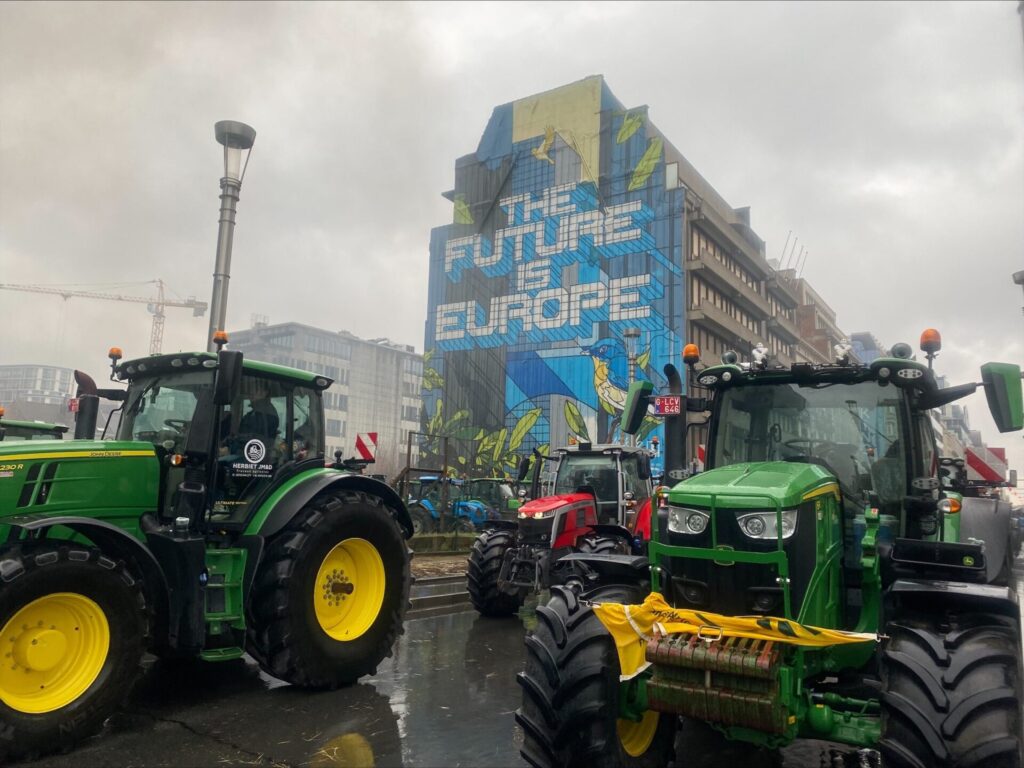 Have the article read by OpenAI (Beta). Please note that AI translations may take some time to process.
Have the article read by OpenAI (Beta). Please note that AI translations may take some time to process.The Greens’ lead candidate for the European elections, Terry Reintke, is demanding written commitments from European Commission President Ursula von der Leyen in order to support her re-election. “I will need to see things on paper before I vote in a certain way,” she said in an interview with the European Newsroom in Strasbourg on Wednesday. She said she believes that von der Leyen is currently feeling pressure, especially from her own party family, the European People’s Party (EPP). This is very tangible and already having a major impact, Reintke said.
Von der Leyen is aiming for a second term as President of the European Commission after the European elections in the summer. To achieve this, she will also need a majority in the European Parliament after the election. She could be dependent on the votes of the Greens.
Reintke said that the EU’s environmental and climate policy must be continued and expanded. Investments in infrastructure, renovation and the green transformation of companies are needed. “This will be key for us, alongside obviously with making the transition socially just,” she said.
European elections: a rise of the far-right?
Reintke refused to put a prognosis on what she sees as a success in June’s European Parliament elections, saying she aimed at “consolidating the strong result we had in 2019 with the addition of having a more geographically diverse group”. This will involve, she said, achieving good results outside the countries of central Europe and seeking partners in the South and East, traditionally not very fertile ground for Green parties.
Although in countries such as Spain the expected rise of Spain’s leftist Sumar party will help Green parties in this strategy, at the European level the polls predict a sharp drop in seats for Green parties throughout the EU, which would leave them as the sixth-largest force in the European Parliament.
To try to fight this trend across Europe, the Greens will campaign against the return of austerity and for investment in green and social infrastructure. It is part, Reintke said, of a broader strategy to curb the far-right that also includes warning centre and right-wing parties about the dangers of not maintaining cordons sanitaires.
In the Green candidate’s opinion, a future coalition between the EPP and for example the European Conservatives and Reformists group (ECR) – who could become the third force in the Chamber – would mean a “very clear danger that achievements of this legislature could be reversed or at least could be on hold and not move forward” on climate issues.
“I think there is certainly a threat that the far-right is going to grow in these European elections,” Reintke said. She added however that the shift to the right is not a fatal automatism and warned to make it a self-fulfilling prophecy.
Farmers’ protests

The farmers’ protests across Europe, which have been ongoing for more than a month, require “that we listen to them and try to find answers”, the Green leader said. But there was one important restriction: their problems are not the result of the Green Deal.
“The Greens say that the European Commission has had to close a third of Europe’s farms over the last 15 years, long before the Green Pact began to be talked about in mass politics. You have to see what the problem is with European agricultural policy,” Reintke warned.
The Greens suggest changes in how farm subsidies are distributed in the EU to avoid “80 percent of subsidies going to 20 percent of farmers”, and to tackle the “impossible system” whereby large distributors and supermarket chains set prices while farmers are forced to produce at those prices in order not to go out of business.
“We have to look at how we change these structures so that farmers can make a sustainable living (…) and also measures to protect biodiversity and the climate. All this is possible, but we have to change agricultural policy at European level,” she said. “The aim is to lift the pressure from the farmers to either grow or to close down.”
Reintke said that the farmers’ movement is a movement containing very different groups with “some farmers radicalised, some even undermined by the far-right”. However, she pointed out that there are problems the EU needs to address such as economic problems and the competition system.
This article is published weekly. The content is based on news by agencies participating in the enr.
